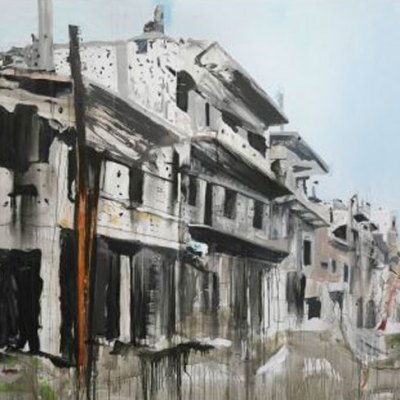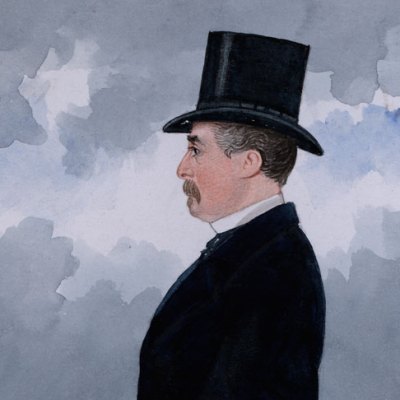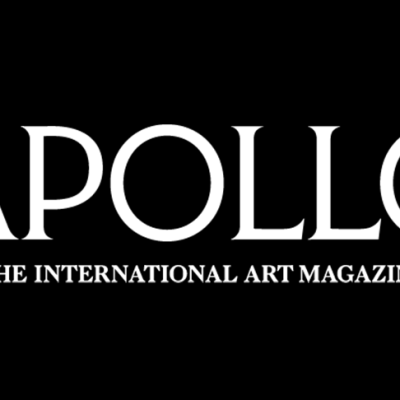Viennese Modernism
100 years ago, the Spanish flu pandemic – which killed between 50 and 100 million people worldwide – claimed the lives of Gustav Klimt and Egon Schiele. The Viennese architect Otto Wagner and Koloman Moser, co-founder of the Wiener Werkstätte, died in the same year. In 2018 Vienna is celebrating these four masters of modernism, with a year-long programme titled ‘Beauty and the Abyss’. Exhibitions across the city’s many museums will include ‘Egon Schiele’ (23 February–4 November) and ‘Vienna around 1900! Klimt – Moser – Gerstl – Kokoschka’ (18 January–10 June), both at the Leopold Museum; ‘Wagner, Hoffmann, Loos and Furniture design in Viennese Modernism’ at the Imperial Furniture Collection (21 March–7 October); and ‘Stairway to Klimt’ at the Kunsthistorisches Museum (13 February–2 September).
Death and Life (1910/11, reworked 1915/16), Gustav Klimt. © Leopold Museum, Vienna. Photo: Leopold Museum, Vienna
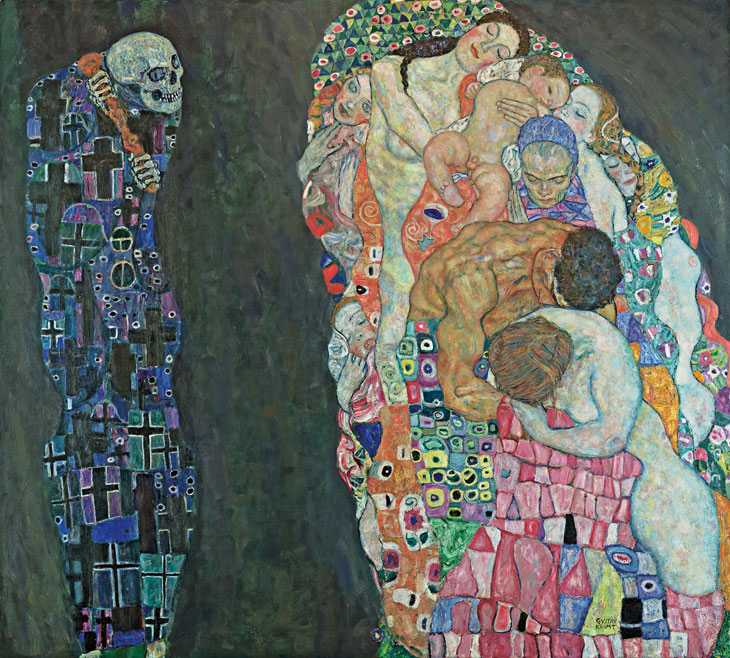
The Royal Academy
The Royal Academy of Arts in London was founded on 10 December 1768 by a group of artists led by Joshua Reynolds, although it wasn’t until 1870 that the RA moved to its current home at Burlington House. In the year of its 250th anniversary the institution is expanding again with a major redevelopment designed by David Chipperfield. The transformation will be unveiled this spring, and the building’s new galleries will be inaugurated with an exhibition of Tacita Dean’s landscapes (19 May–12 August).
Great collectors
This year marks anniversaries for two figures who made important contributions to culture in the United Kingdom and Ireland through generous donations from their exemplary collections. Alfred Chester Beatty was born in New York but in 1950 he moved to Dublin, where he created the Chester Beatty Library to house his extensive book collections. Fifty years after his death in 1968, the Chester Beatty recognises its founder with a special programme of events and exhibitions, including the show ‘Miniature Masterpieces’, based around the 14th-century Coëtivy Book of Hours (from March). In London, meanwhile, the Wallace Collection rings in the 200th birthday of its founder, Sir Richard Wallace, with a celebratory programme centred on the summer exhibition ‘Sir Richard Wallace: The Collector’.
Jacopo Tintoretto at 500
This year Venice celebrates the 500th anniversary of the birth of Jacopo Tintoretto, one of the greatest painters of the Venetian school in the late years of the Renaissance. Apparently, although most of Tintoretto’s masterpieces have remained in Venice, the city has not hosted a major exhibition of his work in more than 80 years. This gap is now being filled, with shows at the Palazzo Ducale (‘Tintoretto: The Artist of Venice at 500’, 7 September–6 January 2019), the Gallerie dell’Accademia (‘Tintoretto Giovane’, also 7 September–6 January 2019 ), and the Scuola Grande di San Marco (‘Art, Faith, and Medicine in Tintoretto’s Venice’), as well as a major conservation campaign organised by Save Venice. The Palazzo Ducale and Gallerie dell’Accademia exhibitions will then merge and travel to the National Gallery of Art, Washington, D.C. in 2019.
Self-Portrait (c. 1588), Jacopo Tintoretto. Musée du Louvre – Département des Peintures
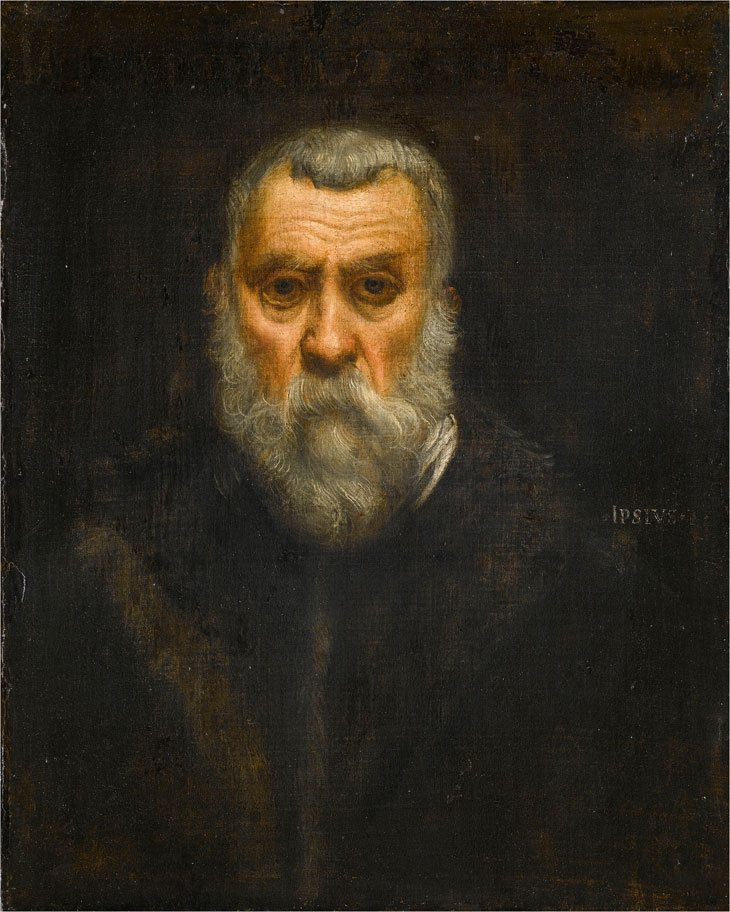
Vote 100
The UK is celebrating the anniversaries of a series of laws and events that paved the way for universal suffrage, notably the Representation of the Peoples Act 1918, which allowed (some) women to vote for the first time in history. (It was 90 years ago, meanwhile, that the Representation of the People (Equal Franchise) Act allowed men and women to vote on the same basis.) The UK Parliament is marking the occasion with its Vote 100 project, which will culminate in June with a large exhibition in Westminster Hall. Elsewhere, related events include Art on the Underground’s year-long programme of contributions by exclusively women artists, and the installation in Parliament Square of Gillian Wearing’s sculpture of suffragette Millicent Fawcett.
The death of Cubism
With practitioners from Picasso and Braque to Delauney and Duchamp, Cubism was one of the most important and influential styles of modern art. And yet it flourished for a relatively brief length of time, beginning in 1907 and generally agreed to have begun declining around 1918 when Louis Vauxcelles (the critic who coined the term) declared Cubism dead. A century later, the Centre Pompidou, in partnership with the Kunstmuseum Basel, brings the movement back into the spotlight with a major survey bringing together approximately 300 artworks by many of its key players (17 October–25 February 2019; then in Basel from 31 March 2019–5 August 2019).
Grand Nu Hiver (1907–08), Georges Braque. Collection Centre Pompidou, Paris. © Centre Pompidou
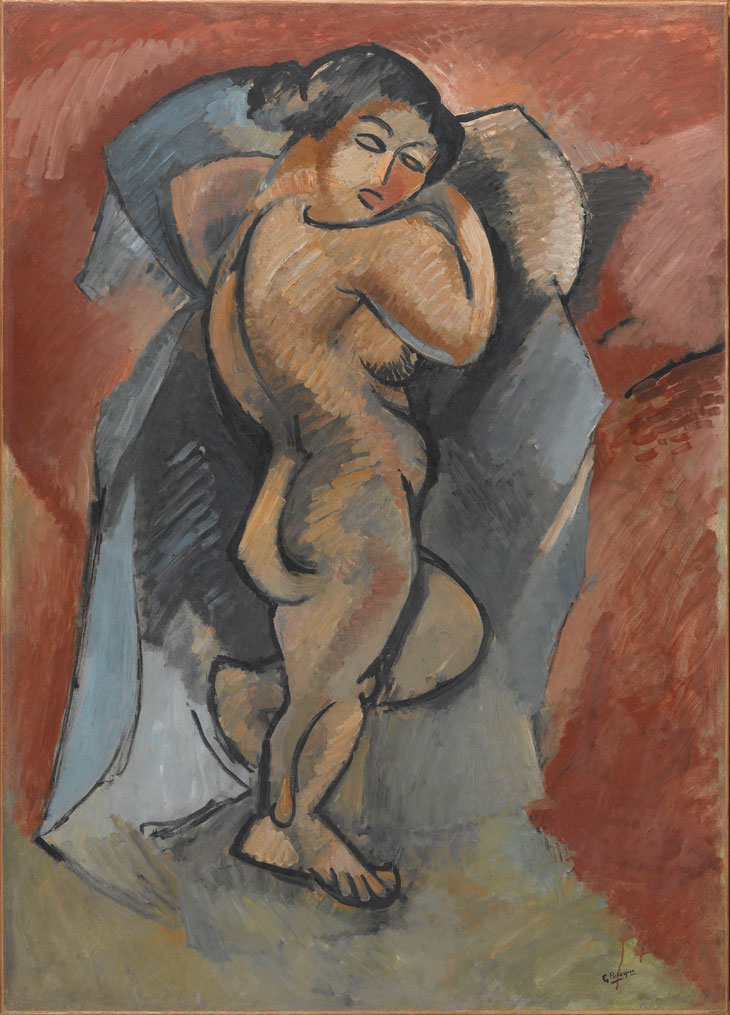
Charles Rennie Mackintosh
The Scottish architect Charles Rennie Mackintosh was born in 1868. On the sesquicentenary of his birth, Mackintosh’s native city of Glasgow is planning a year-long programme of celebrations, most notably perhaps the reopening of the newly restored art nouveau Willow Tea Rooms. And at Kelvingrove Art Gallery and Museum, visitors will have the chance to view ‘Charles Rennie Mackintosh: Making the Glasgow Style’, a special exhibition of around 250 objects from stained glass and ceramics to graphics and architectural designs (30 March–14 August).
Chippendale
The tercentenary of the birth of famed Yorkshire-born cabinet-maker Thomas Chippendale (1718–79) will be celebrated this year with a series of exhibitions and events across the UK. The centrepiece of the programme is Leeds City Museum’s survey, which brings together original drawings, documents and key examples of Chippendale furniture, opening on 9 February (until 9 June).
